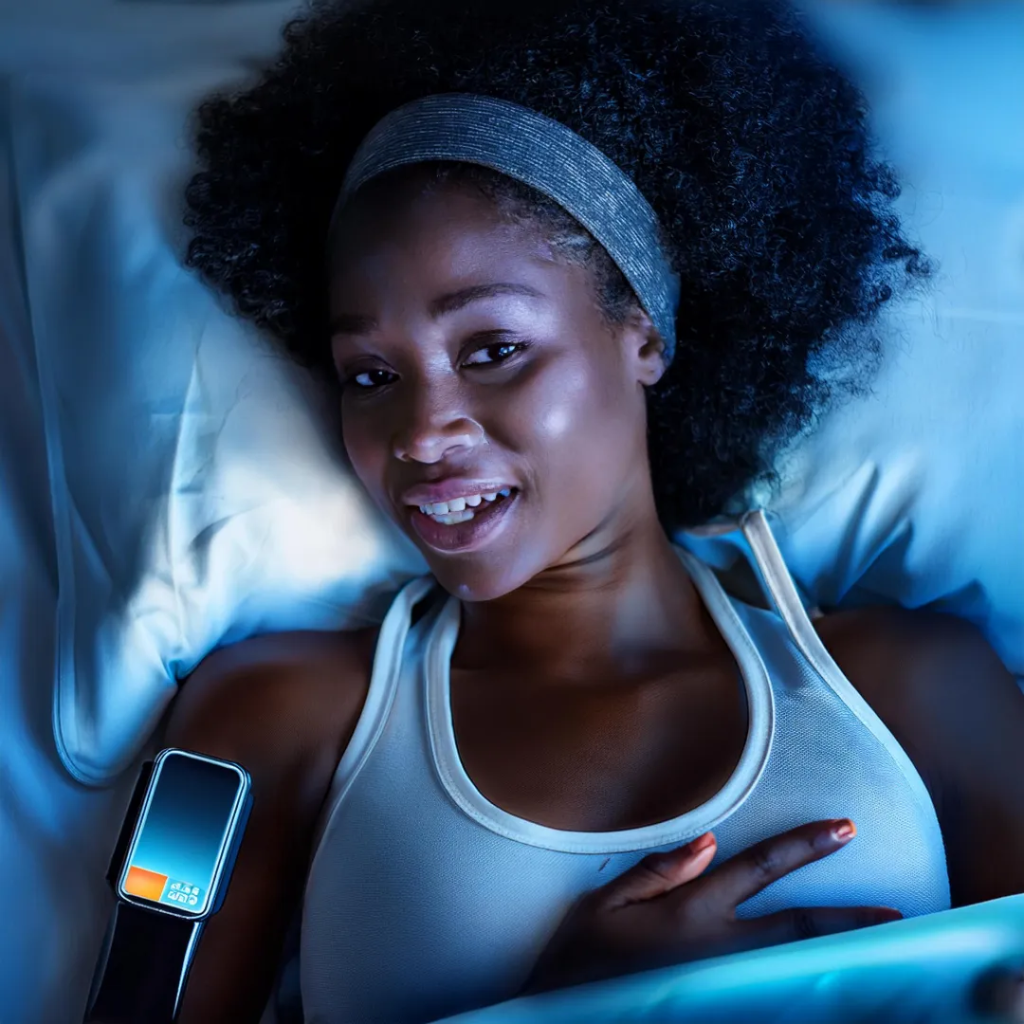- 01203134207
- +91-8750054466
- +91-8123018558
- +91-8095555997
Preventing Sleep Apnea With Smart Technology
Sleep apnea is a common yet serious sleep disorder that disrupts breathing during sleep, leading to poor sleep quality and various health complications. However, advancements in smart technology are providing innovative solutions for preventing and managing sleep apnea. By incorporating these technologies into your daily routine, you can improve your sleep health and overall well-being.

Understanding Sleep Apnea
Sleep apnea occurs when the airway becomes blocked during sleep, causing breathing to pause or become shallow. This condition can lead to excessive daytime sleepiness, fatigue, cardiovascular problems, and a decrease in overall quality of life. The two most common types of sleep apnea are obstructive sleep apnea (OSA) and central sleep apnea (CSA).
How Smart Technology Can Help Prevent Sleep Apnea
- Smart Sleep Monitors:
- Wearable Devices: Smartwatches and fitness trackers can monitor your sleep patterns, heart rate, and oxygen levels throughout the night. By analyzing this data, you can identify signs of sleep apnea, such as irregular breathing patterns, and discuss them with a healthcare professional.
- Sleep Apps: Many smartphone applications can track sleep quality and provide insights into your sleep environment. They can help you identify factors that contribute to sleep apnea, such as snoring, and suggest improvements.
- Connected CPAP Machines:
- Smart CPAP Devices: Continuous Positive Airway Pressure (CPAP) therapy is a common treatment for sleep apnea. Newer models come equipped with smart technology that adjusts airflow based on your breathing patterns, providing personalized treatment. These devices can also track usage data and send it to your doctor for remote monitoring.
- Mobile Connectivity: Many CPAP machines now have mobile apps that allow you to monitor your treatment progress and receive reminders to use the device regularly. This added convenience encourages adherence to therapy.
- Smart Mattresses and Pillows:
- Adjustable Firmness: Smart mattresses can adjust their firmness and position based on your sleep patterns and preferences. Some models even come with features that raise the head of the bed to improve airflow and reduce the risk of airway obstruction.
- Temperature Control: Maintaining an optimal sleep temperature is crucial for quality rest. Smart mattresses and pillows can regulate temperature, helping you sleep more comfortably and potentially reducing sleep apnea symptoms.
- Home Environment Sensors:
- Air Quality Monitors: Poor air quality can exacerbate sleep apnea symptoms. Smart home sensors can monitor indoor air quality, detecting allergens, humidity, and pollutants. Keeping your bedroom air clean and fresh can lead to better sleep.
- Smart Thermostats: Maintaining a comfortable bedroom temperature is essential for restful sleep. Smart thermostats can automatically adjust the temperature based on your preferences and time of night, creating a sleep-friendly environment.
- Sleep Hygiene and Routine Apps:
- Guided Relaxation and Meditation: Smart technology offers access to apps that provide guided relaxation exercises and sleep meditation, helping you unwind before bedtime. Reducing stress and anxiety can improve your overall sleep quality, lowering the likelihood of sleep apnea episodes.
- Sleep Schedule Reminders: Establishing a consistent sleep schedule is vital for preventing sleep apnea. Smart devices can send you reminders to wind down and prepare for sleep at the same time each night.
- Telehealth Consultations:
- Remote Monitoring: Many healthcare providers now offer telehealth consultations, allowing you to discuss sleep apnea symptoms and treatment options without visiting the office. This convenient access to healthcare can ensure that you receive timely advice and support.
- Smart Data Sharing: If you use smart devices for sleep monitoring, sharing this data with your healthcare provider can lead to more accurate diagnoses and personalized treatment plans.
Conclusion
Preventing sleep apnea requires a proactive approach, and smart technology offers innovative solutions to help you achieve better sleep health. From wearable devices and smart CPAP machines to adjustable mattresses and sleep hygiene apps, the integration of technology into your sleep routine can significantly improve your quality of rest. By taking advantage of these advancements, you can reduce the risk of sleep apnea and enhance your overall well-being. Prioritize your sleep health today with Restolex! Call us at 01203134207 to find the perfect mattress to support your journey to better sleep.
Newsletter Sign Up
Join our community to receive exclusive updates, sleep tips, and special offers directly in your inbox. Stay informed and be the first to know about our latest products and promotions.

Contact Us
- 9/1, Ashokapuram, Industrial Suburb, Yeshwanthpur, Bengaluru-560022, India
-
care@restolex.com
Orders@restolex.com
Support@restolex.com -
+91-8750054466
+91-8123018558
+91-8095555997
